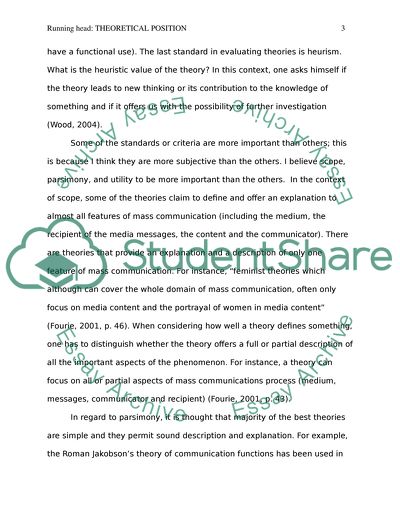Cite this document
(“Theoretical Position. Standards for Evaluating Theories Essay”, n.d.)
Retrieved de https://studentshare.org/journalism-communication/1391411-theoretical-position-standards-for-evaluating-theories
Retrieved de https://studentshare.org/journalism-communication/1391411-theoretical-position-standards-for-evaluating-theories
(Theoretical Position. Standards for Evaluating Theories Essay)
https://studentshare.org/journalism-communication/1391411-theoretical-position-standards-for-evaluating-theories.
https://studentshare.org/journalism-communication/1391411-theoretical-position-standards-for-evaluating-theories.
“Theoretical Position. Standards for Evaluating Theories Essay”, n.d. https://studentshare.org/journalism-communication/1391411-theoretical-position-standards-for-evaluating-theories.


